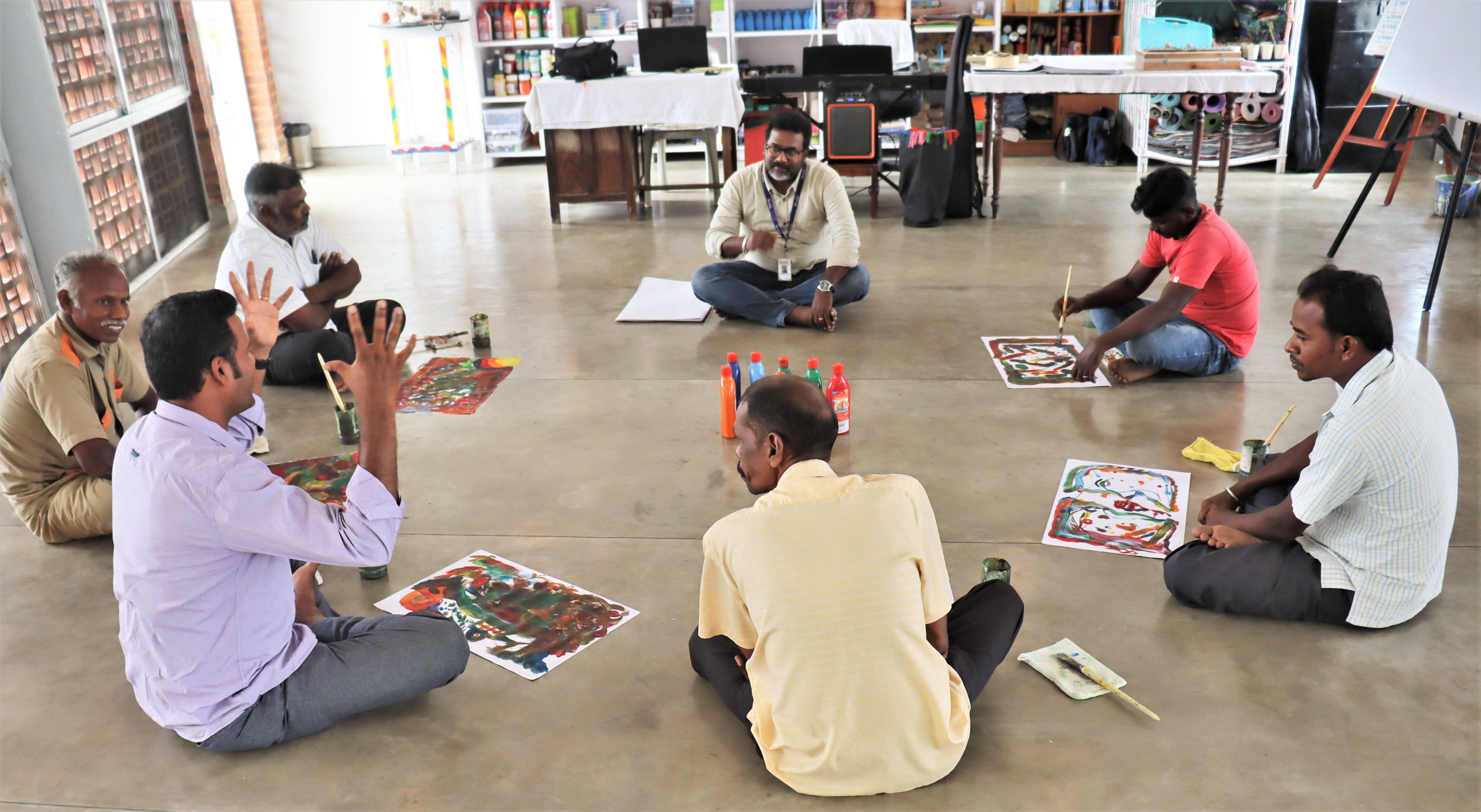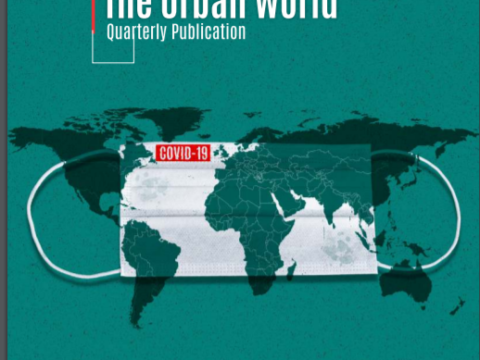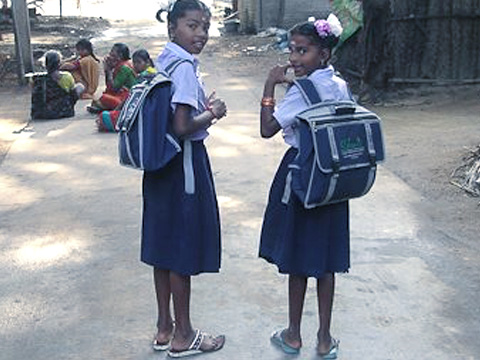Penned by Board Member Alo Pal
Seven years ago, almost to the day, my baptism at work in Sharana was with Manuel sitting in front of me introducing himself and speaking about his work. The most basic as well as the overriding aim of Sharana at the time was to send children to school and prevent dropouts. But, any true intervention in social development cannot be linear, and involving mothers in the process was natural and also practical, since perfunctory observation made it evident that it was the mothers in these poor families that were more invested in securing a better future for their children and they understood the value of education.
But it was not so with Manuel. Right from my first tête-a-tete to this day seven years on Manuel never once forsook his resolve to involve fathers in the process. You may well wonder why this was significant. The basic family unit, as we are conditioned to believe, is after all mother, father and child. But Sharana works with a demographic where fathers toil long hours often in stagnant unskilled manual work, addicted to alcohol that spills into abusive relationships with their wives and even children. A child going to school is perceived as a working hand lost. Mothers are often equally employed in low paying unskilled jobs and are conditioned to live a life of fate, fear and silent suffering. In these circumstances, Sharana is forced to pick its battles. The child has to be sent to school and at most mothers empowered to ensure their children stay in school. This in itself, is a battle won.
But then we’ve all been children and we can all relate to the role, influence and presence of a father in our lives. No matter how distant, and perceived with as much love as trepidation, deep down a father is a child’s hero. No holistic intervention in a child’s life can be complete without involving them. This is also evidenced from the prominent space fathers have in the art therapy sessions with the children. Though extremely difficult, working with fathers has been a constant underlying wish of Manuel’s. Over the years several attempts have been made to involve fathers in meetings and outreach. These were usually met with a certain stoic silence and detachment or even hostile unwillingness. As alcoholics or as abusers or perhaps the pressure of being inadequate providers made such meetings frosty and unimpactful.
As we have reported earlier, Manuel is Sharana’s in-house Art Therapist and Expressive Arts Practitioner. And when Manuel at last conducted his first Art Therapy session with a small group of fathers, it felt like the culmination of a dream. But to what end, one might ask.
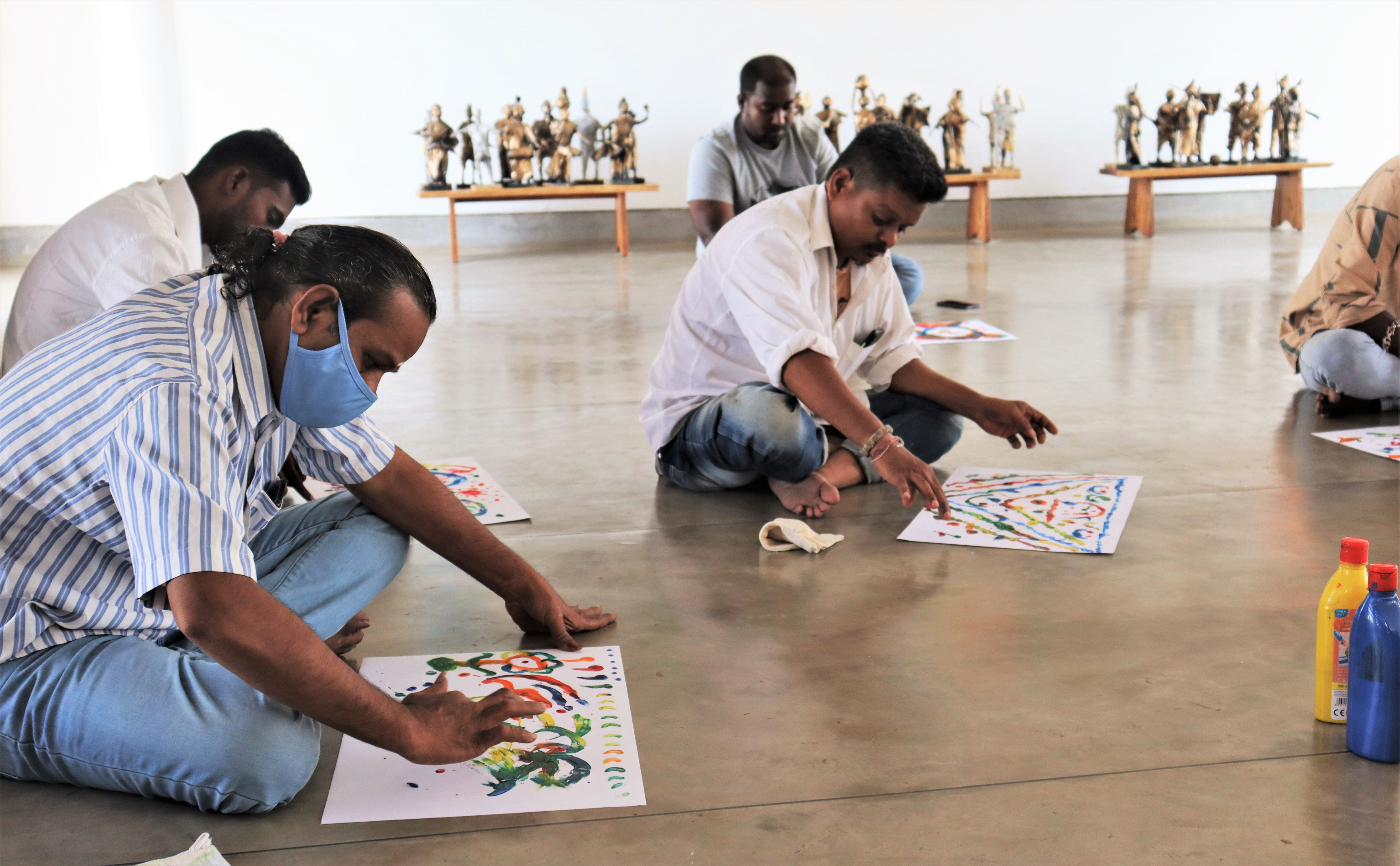
What was it that needed to be fixed? While working with the children it was noticed that in the eyes of children, easily swayed by coarse cinema and popular culture there was an erosion of the sanctity and value of the family. Countering this wasn’t possible if signals coming from within their families did not change. What pots of paint, a blank paper, the seclusion of a private art session within the Sharana Social Centre and fingers did to the men was an un-self-conscious, slow reconnect to their own childhoods. While they were conditioned to be the pole of authority and have certain gravity, the men could gradually open up.
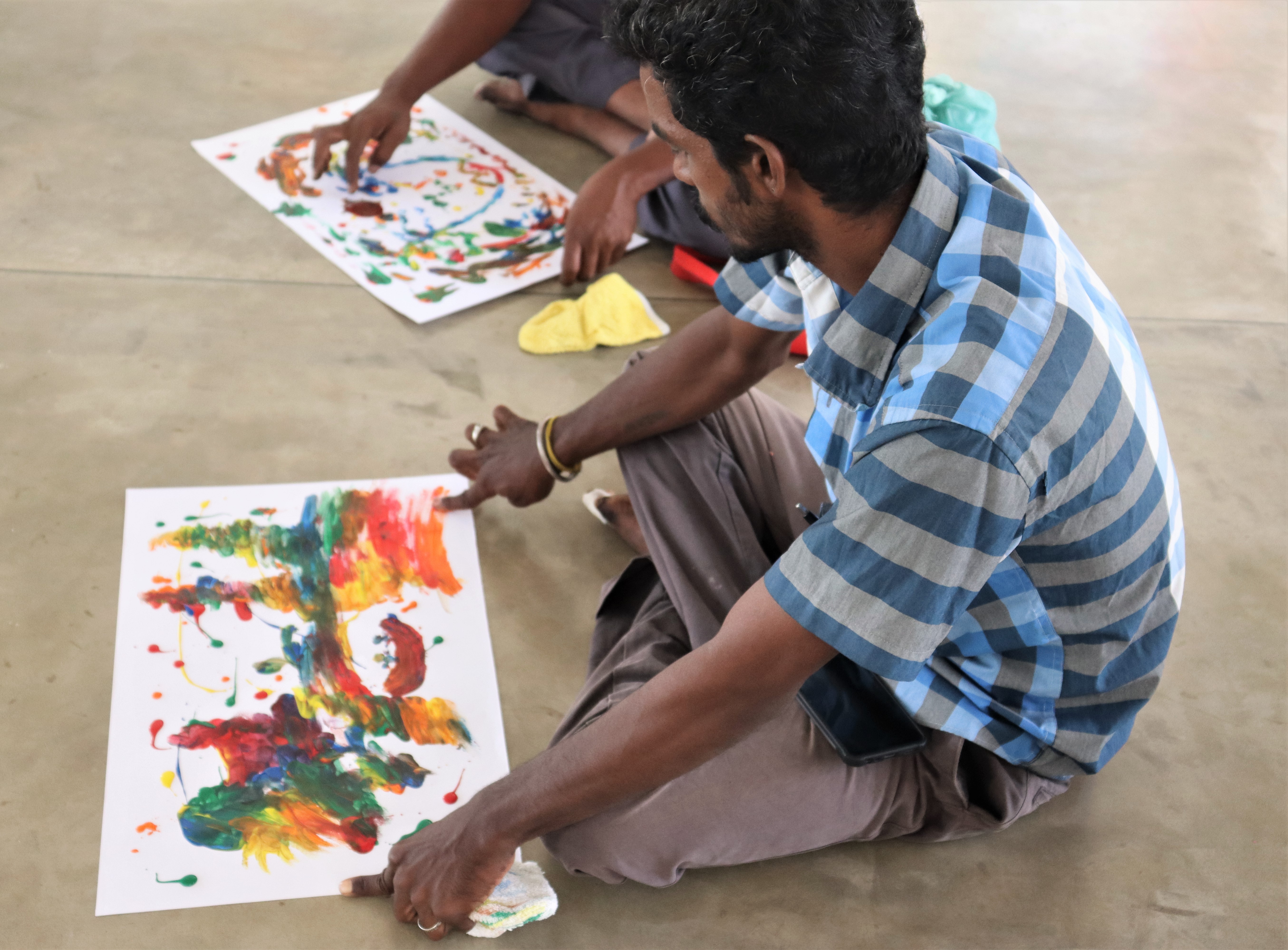
One vocal participant who protested even as he finished the session, admitted the value of the exercise that helped him face aspects of himself that used to make him uncomfortable and self-conscious.
The overriding pressure and influence of work expressed itself poignantly when a fisherman he only ever saw blue, the colour of his life, his means to feed his family and his relentless reality in fair weather and foul. But playing on a blank paper with strokes of reds and greens and yellows opened a door to what seemed like a new world to him.
One participant said the session made him feel that he was in the presence of God. The beauty of this was that in the chaos of colours and shapes of his finger painting there did emerge a distinct shape of a Shiva Linga.
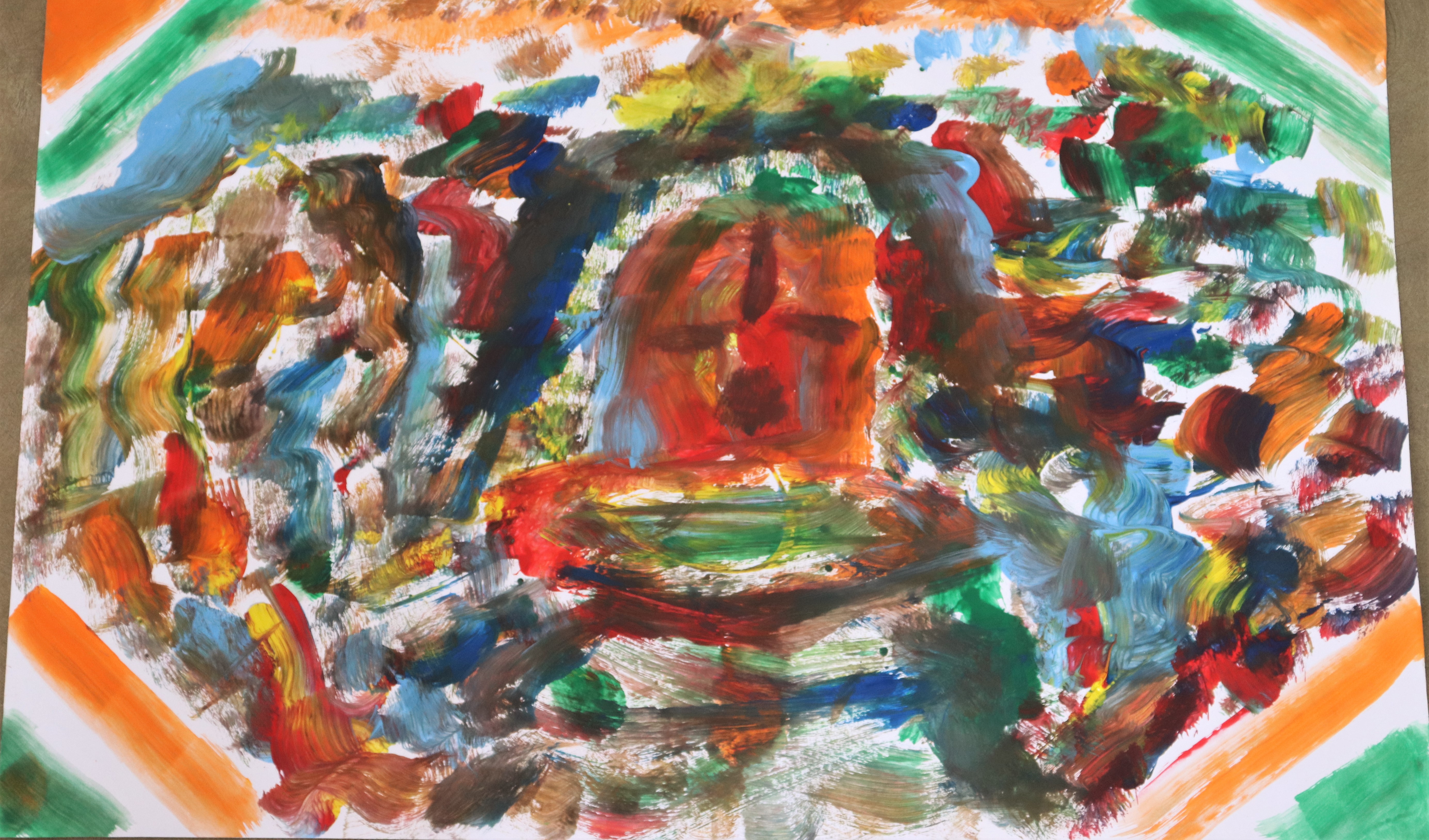
Another used the session to just make a beautiful painting. No attempt to delve within or ponder. Just use the time to free the clutter of his mind and express beauty.
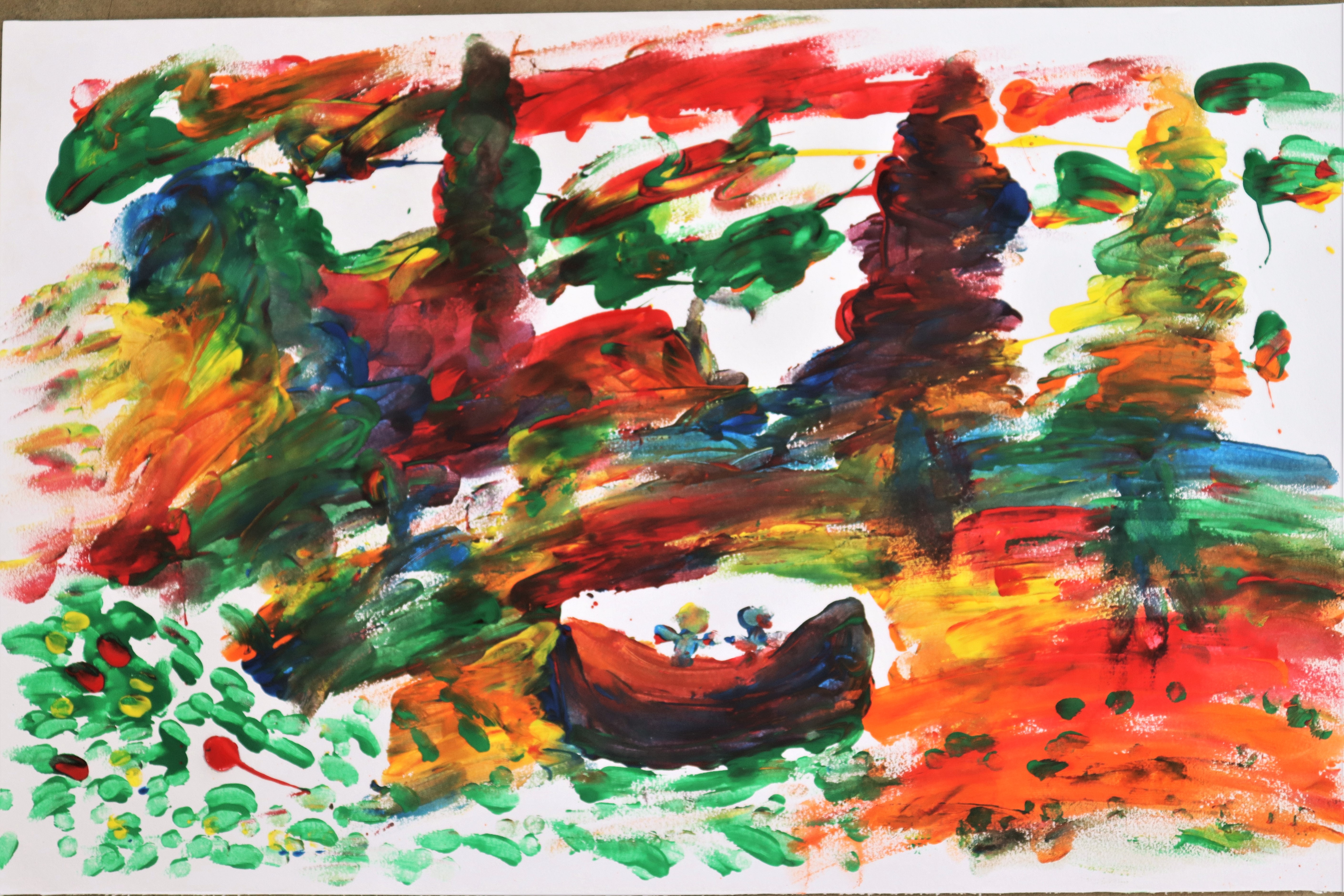
The most significant impact was fathers being able to reconnect with their own childhood years, though difficult, where life was experienced via the senses and sensibilities of a child. Alas, reality has its inevitable way of beating those memories to retreat, and that alters their behavior towards their own wives and children.
Among boxes of paint, a blank piece of paper, protection from the gaze and the judgement of others, persuasion by Manuel, we had men of different backgrounds and difficult circumstances reconnect with their childhood. What did that achieve? Hopefully, it enhanced their understanding of the value of the family. As they were growing they moulded themselves into the templates of men they saw their fathers were. But as their children grew, it was important to do a reset of what’s precious and needs preservation, because in our times these archetypal templates in popular culture are hell-bent on questioning fundamental values of family bonds. We need more than ever to save our family units. The father in a house may well continue to be a source of love couched in authority or muted expression, but a child will always have him as her hero. And a father who values his family will protect a child from feeling less about the family. 